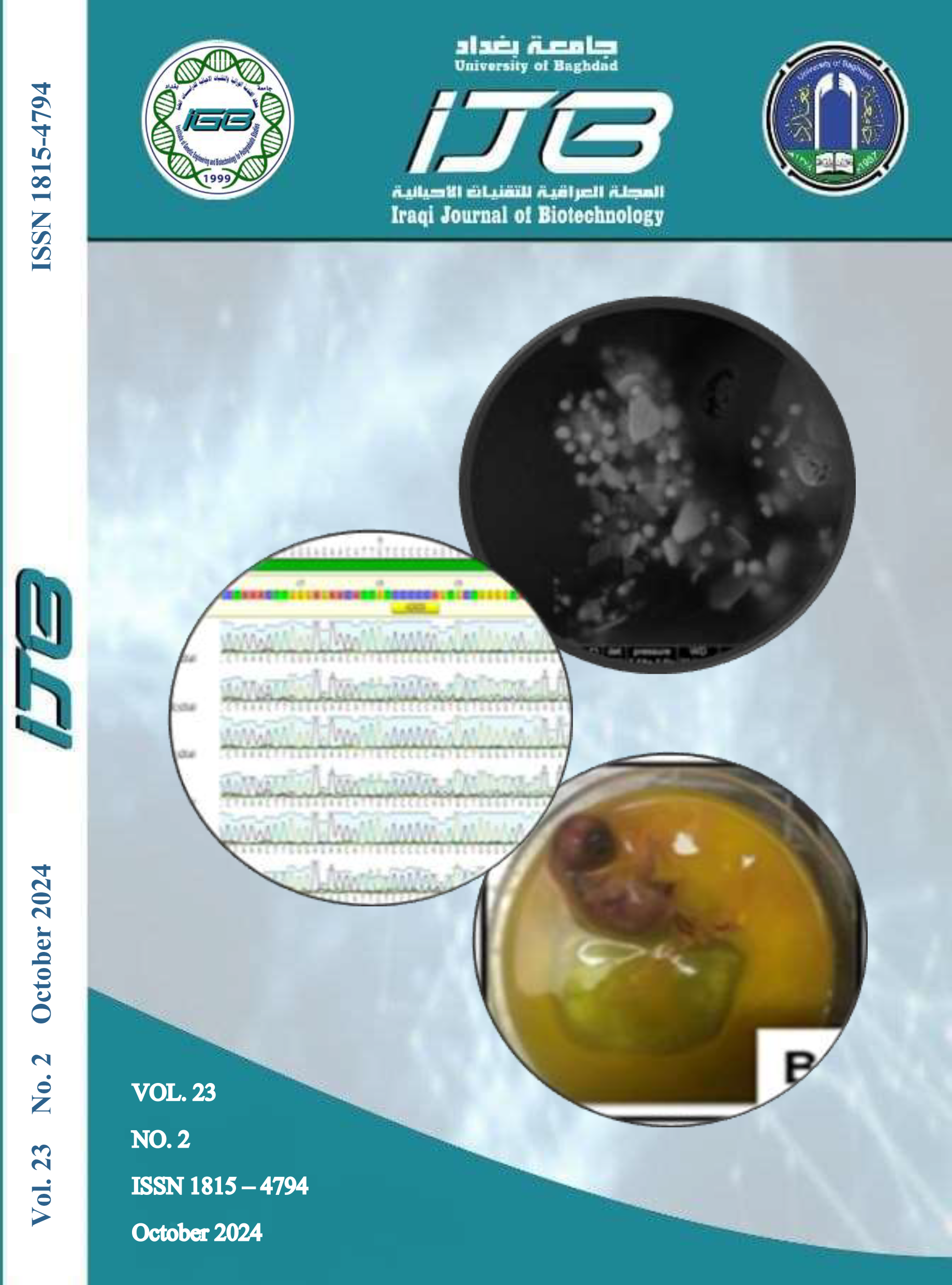Impact of siRNA-Mediated Gene Silencing on IntII Gene Expression for Clinical Isolated Pseudomonas aeruginosa
Abstract
Integrons hold significant importance in gram-negative bacteria, which are known for being susceptible to acquiring antibiotic resistance. The aim of this study was to identify Integron class II (intII) genes and induce silencing in the intII gene by designing small interfering RNA (siRNA) molecules specifically targeting this gene in Pseudomonas aeruginosa and demonstrating a silencing effect on antibiotic resistance. The DNA was extracted from 30 clinical isolates of P. aeruginosa to identify the intII gene, and a specific siRNA was designed and attached to gold nanoparticles (AuNPs) for delivery into bacterial cells. The replica plate method and RT-PCR techniques were applied to assess the impact of silencing. The findings indicated the presence of the intII gene in 10% of the isolates, and the process of joining siRNA and AuNPs was very effective. Phenotypically silencing that was induced by siRNA showed significant differences between transformed (sensitive) and non-transformed (resistant) colonies, but in contrast, gene expression of the intII gene was increased after being treated with siRNA. The study concluded that siRNA-AuNPs could be a potential therapeutic agent for P. aeruginosa infections. Based on the findings, treatment with siRNA showed a very high significant difference between transformed (susceptible) and non-transformed colonies (resistance), and the pre-treatment with siRNA dramatically reduced the bacteria load.


